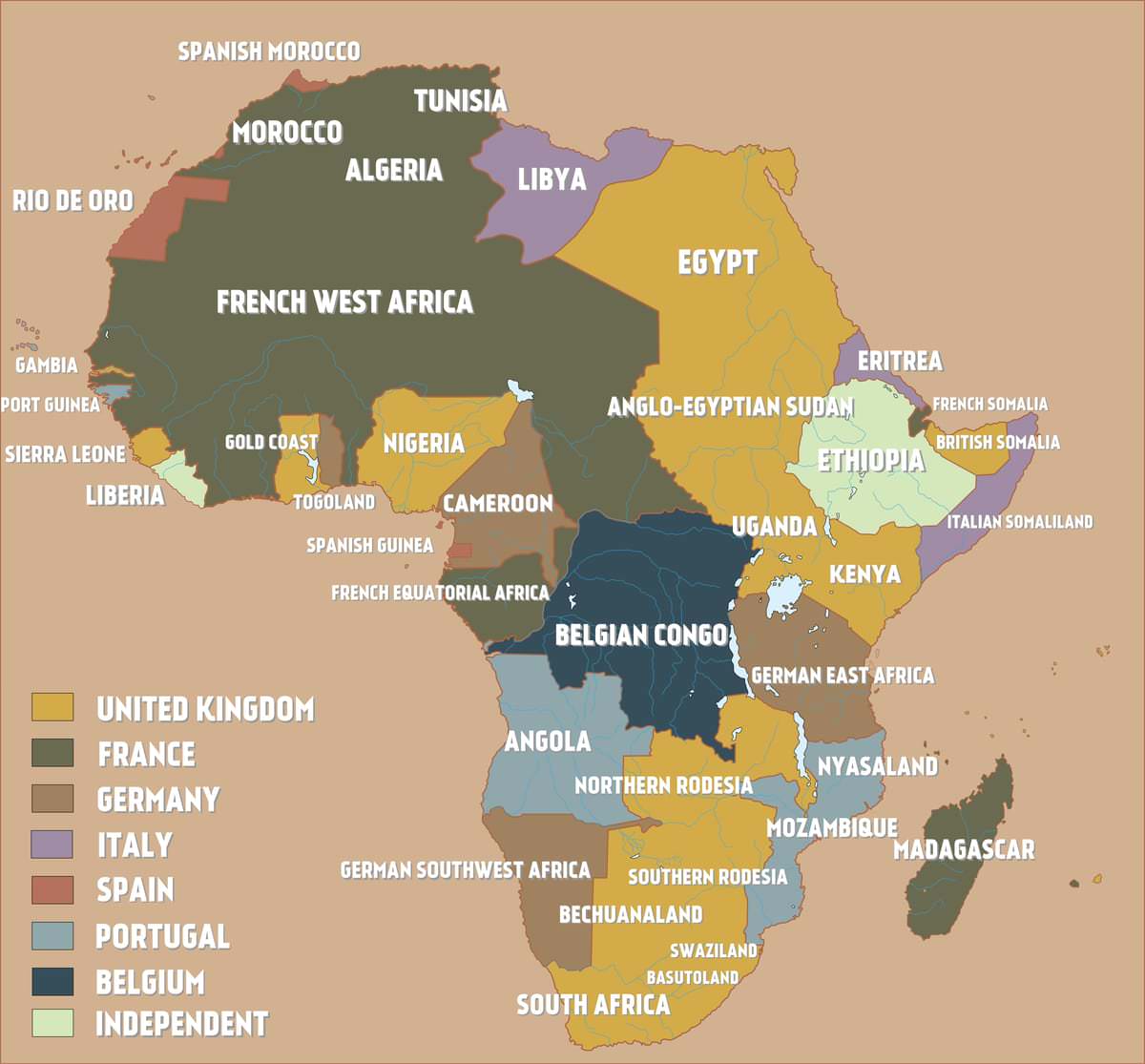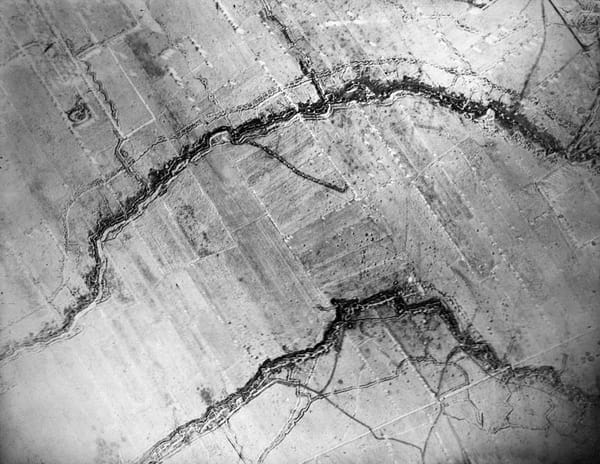Imperialism in Africa

One of the many areas falling under European Imperialism was the continent of Africa. In fact, this continent was so heavily "colonized" that by 1914, only two African nations remained independent: Liberia and Ethiopia.
Africa was a prime target for European imperialist powers because of two main reasons: the weak native population and the many resources sourced from there. Obviously, that was not a good reason to invade someone else's land, so the Imperialists argued that it was a duty of the "superior races" to "civilize the inferior races." (Ferry)
The imperialist nations used different method for subduing the African tribes. European traders often convinced African chiefs to sign treaties that gave the government their land in exchange for protection from other European countries or other tribes. Other times, the tribes came to the Europeans for protection. If that didn't work, the European powers also used their superior militaries to subdue the African tribes.
One of the main reasons for European expansion in Africa was the resources they could extract from the continent. Some of these included rubber, diamonds, and gold.
Joseph Conrad was a Polish-British captain who wrote the book Heart of Darkness, inspired by his experiences in colonial Africa. This book was named that way because the African continent was often described as "dark" because it was largely unexplored. One of the main characters, Kurtz, is also described as having a dark heart because he abuses the natives for his own gain, much like the imperialists.
Sources:
Ferry, Jules. “On French Colonial Expansion.” On French Colonial Expansion, translated by Ruth Kleinman, 26 Jan. 1996, sourcebooks.fordham.edu/mod/1884ferry.asp.




